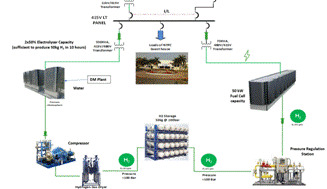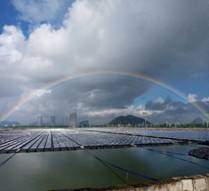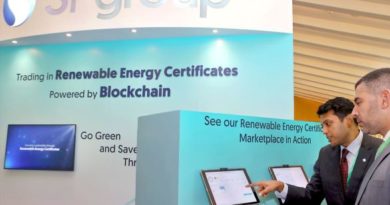India’s first Green Hydrogen Microgrid Project to be set up at NTPC Simhadri

Power major and India’s largest generator NTPC has awarded a project of “Standalone Fuel-Cell based Micro-grid with hydrogen production using electrolyser in NTPC Guest House at Simhadri (near Visakhapatnam)”. The project is being touted as India’s first Green Hydrogen based Energy Storage Project. It would be a precursor to large scale hydrogen energy storage projects and would be useful for studying and deploying multiple microgrids in various off grid and strategic locations of the country.

The hydrogen would be produced using the advanced 240 kW Solid Oxide Electrolyser by taking input power from a nearby Floating Solar project. The hydrogen produced during sunshine hours would be stored at high pressure and would be electrified using a 50 kW Solid Oxide Fuel Cell. The system would work in standalone mode from 5PM in the evening to 7AM in the morning.

This unique project configuration is designed in-house by NTPC. It is a unique project for India and would open doors for decarbonising the far-off regions of the country like Ladakh, J&K etc., hitherto dependent on diesel generators. India has made it a priority to make its eco-sensitive zones like Ladakh and its island regions like the Andamans and Lakshadweep islands powered by green energy.
For NTPC, as the premier national generator with a 60 GW target for renewable energy by 2032, getting its green hydrogen manufacturing process in place would mean the potential for future growth and expansion in renewable energy capacities too, going beyond the usual grid driven demand. In fact, dedicated renewable capacities for green hydrogen open up possibilities for many developers to break out of the the PPA dependent regime for sustainance, if manufacturing costs drop down fast and low enough to make it viable. Help is also forthcoming in the form of green hydrogen obligations for sectors that could kick in from 2024-25, much like the RPO obligations that are pushing state discoms to contract for renewable energy currently.




